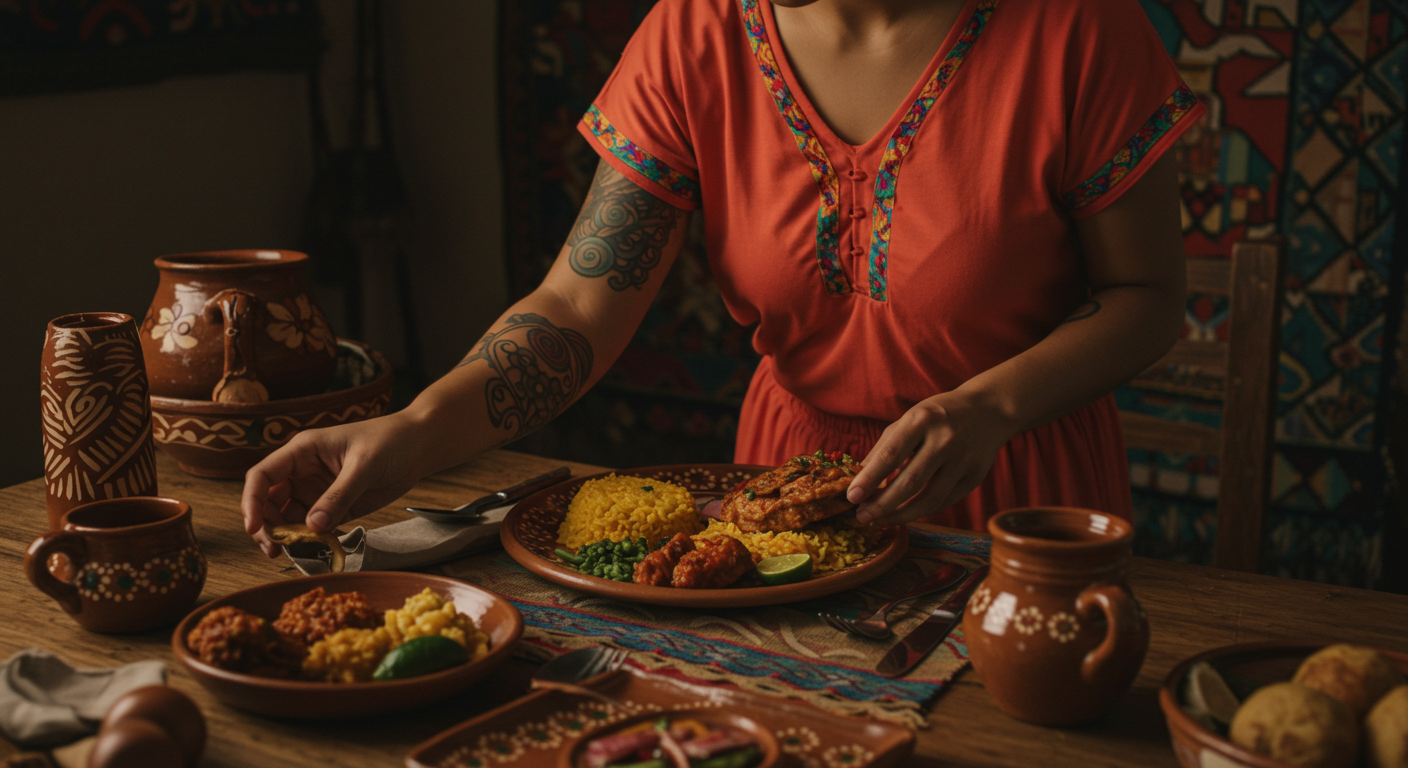Across Africa, food is not merely sustenance—it is a vessel of memory, ritual, and spiritual connection. Cooking for the ancestors is a sacred act practiced in many African cultures to honor the dead, seek blessings, and maintain a thread between the physical and spiritual worlds.
This ancestral reverence manifests during annual festivals, family ceremonies, and even in everyday practices. In preparing meals for the ancestors, one is not simply cooking—one is preserving lineage, expressing gratitude, and affirming identity.
The Ancestral Table: Practices from Across the Continent
Different ethnic groups have unique customs for ancestral offerings:
Yoruba (Nigeria): During Odun Egungun (Festival of the Ancestors), families offer dishes like amala, ewedu, gbegiri, and bush meat at altars. Libations of palm wine or water are poured as invocations are made.
Ashanti (Ghana): Ancestors are honored with eto (mashed yam with palm oil and eggs), placed on shrines with prayers. The belief is that the spirits partake of the essence or aroma of the food.
Zulu (South Africa): Food offerings include uphuthu (maize meal porridge) and inyama yenkomo (beef) laid out in homesteads, usually after animal sacrifices or ceremonies like imbeleko (baby naming).
Tigray (Ethiopia): Orthodox Christian families prepare fasting dishes during commemoration services (Kahinat), including lentils, teff bread, and ceremonial coffee for both guests and ancestors.
Berber (North Africa): In ancestral rituals, couscous and dried fruits are offered, with incense burning as part of the ceremonial meal.
These offerings aren't symbolic alone—they express the continuity of family, community, and spiritual duty.
Why We Cook for the Ancestors
To Remember and Honor: Food serves as a living memory, helping descendants connect with those who came before.
To Seek Blessings: Ancestors are believed to intercede for the living; feeding them ensures harmony and favor.
To Restore Balance: During crises or illness, ancestral meals are prepared to restore cosmic and familial balance.
To Celebrate Milestones: Weddings, births, funerals, and housewarmings often include ancestral offerings to sanctify the occasion.
Common Ingredients in Ancestral Dishes
Palm oil: Symbolizes spiritual richness and is used for sanctified meals.
Beans & yam: Signify prosperity and nourishment.
Kolanut or alligator pepper: Used in libations and oaths, often accompanying sacred meals.
Fermented items: Represent transformation and ancestral wisdom.
Native herbs and spices: Carry symbolic and medicinal value.
These meals are usually made from scratch, slow-cooked, and offered with mindfulness. They are cooked in silence or with specific chants, emphasizing intention over extravagance.
Modern Interpretations of Ancestral Cooking
Younger Africans and members of the diaspora are beginning to rediscover ancestral cooking. In cities like Nairobi, Lagos, and Atlanta, chefs are curating ancestral tasting menus—multi-course meals inspired by ceremonial dishes.
Others prepare offerings on special days (e.g., birthdays of deceased loved ones) by lighting candles, placing food by windows or ancestral altars, and playing traditional music. It's a way to fuse the modern lifestyle with spiritual legacy.
Creating Your Own Ancestral Meal Ritual
You don’t have to be a priest or elder to cook for the ancestors. Here’s how to do it meaningfully:
Choose a day: Preferably linked to a family celebration, memorial, or full moon.
Cook traditional dishes: Use recipes from your family or community.
Set a sacred space: An altar, candle-lit corner, or decorated table.
Make an offering: Place a portion of each dish aside for the ancestors.
Speak or sing: Offer words of thanks, remembrance, and prayer.
Share with family: Food becomes a bridge between the living and the departed.
Conclusion: The Kitchen as Ancestral Temple
Cooking for the ancestors is a profound act of love, remembrance, and healing. In honoring them with food, we feed our own spirits, affirm our identity, and bring wholeness to our fractured histories. In a world hungry for meaning, returning to ancestral cooking grounds us in wisdom that predates written history.
So the next time you stir a pot of ogbono, steam injera, or mash yam with palm oil, remember: you’re not just cooking—you’re communing.



